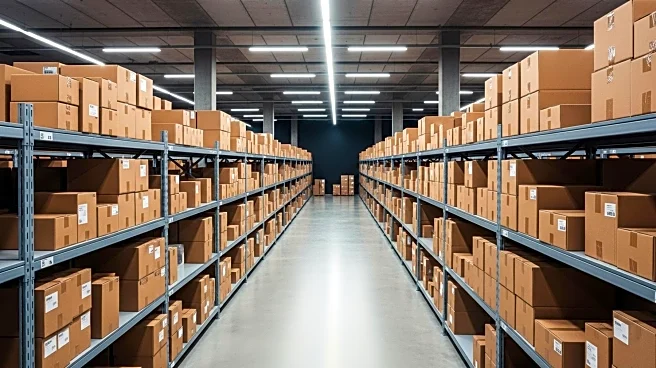What is the story about?
What's Happening?
At the CSCMP Edge 2025 conference, Home Depot and other companies showcased the strategic importance of reverse logistics in supply chain management. Home Depot's Director of Reverse Logistics, Troy Campbell, emphasized the transformation of reverse logistics from a cost burden to a value stream. Home Depot's reverse logistics network handles $1.9 billion in returns and generates $200 million in sales through liquidation channels. The company also recycles over 76 million pounds of material annually, contributing to revenue and sustainability goals.
Why It's Important?
Reverse logistics is becoming a critical component of supply chain strategies, offering opportunities for cost savings and revenue generation. By treating returns as a value stream, companies can enhance their sustainability efforts and improve operational efficiency. The rise of secondary market channels, such as bin stores and livestream auctions, allows companies to maximize the value of returned goods. This shift reflects a broader trend towards circular economy practices, which can differentiate companies in competitive markets.
What's Next?
Supply chain leaders are encouraged to integrate reverse logistics into their core operations, leveraging data and analytics to optimize decision-making. Companies may explore new resale and liquidation strategies to enhance their reverse logistics capabilities. As circularity becomes increasingly important, firms that successfully manage returns as a strategic asset will likely gain a competitive edge. Home Depot's approach serves as a model for other retailers looking to capitalize on reverse logistics.
Beyond the Headlines
The evolution of reverse logistics highlights the potential for supply chains to contribute to sustainability goals. By reducing waste and promoting recycling, companies can align their operations with environmental objectives. The integration of reverse and forward networks can lead to greater efficiency and cost savings. As consumer expectations for sustainability grow, companies that prioritize reverse logistics may enhance their brand reputation and customer loyalty.
















